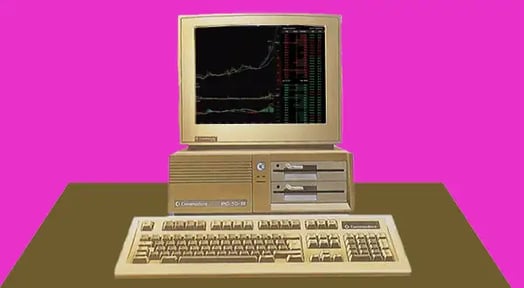Holy HAL. As artificial intelligence gets more, well, intelligent, it’s playing a bigger role in the finance world — and it’s starting to write its own rules.

Although there are certain efficiencies inherent in letting a machine run the numbers, some worry that AI anarchy could lead to economic catastrophe.
It’s getting quieter on the trading floor
You’ll still see stressed-out guys in suits yelling about buying and selling, but more of that work is getting done on servers. Computer-run funds make up 35% of the US stock market, 60% of institutional equity stocks and 60% of trading activity.
Sophisticated programs can do more than just manage portfolios
They’re now starting to monitor the economy and move capital.
While most of these AI programs are designed to follow rules established by their human controllers, newer programs are starting to write their own strategies… often in ways humans can’t quite follow.
‘I’m sorry, Dave. I’m afraid I can’t do that.’
Data is a big driver in determining how to move money, but some economic phenomena — like the trade war or falling interest rates — require a human touch to navigate.
Meanwhile, some hedge fund managers have raised concerns that AI might not operate under the same strict insider-trading and disclosure laws they do — you can’t program scruples.
Other investigators have complained that the way AI chases and abandons securities can distort asset prices, and that some algorithms have already led to “flash crashes.” And because it’s fund managers who vote board members in and out of office, AI could even start playing a role in corporate governance.
